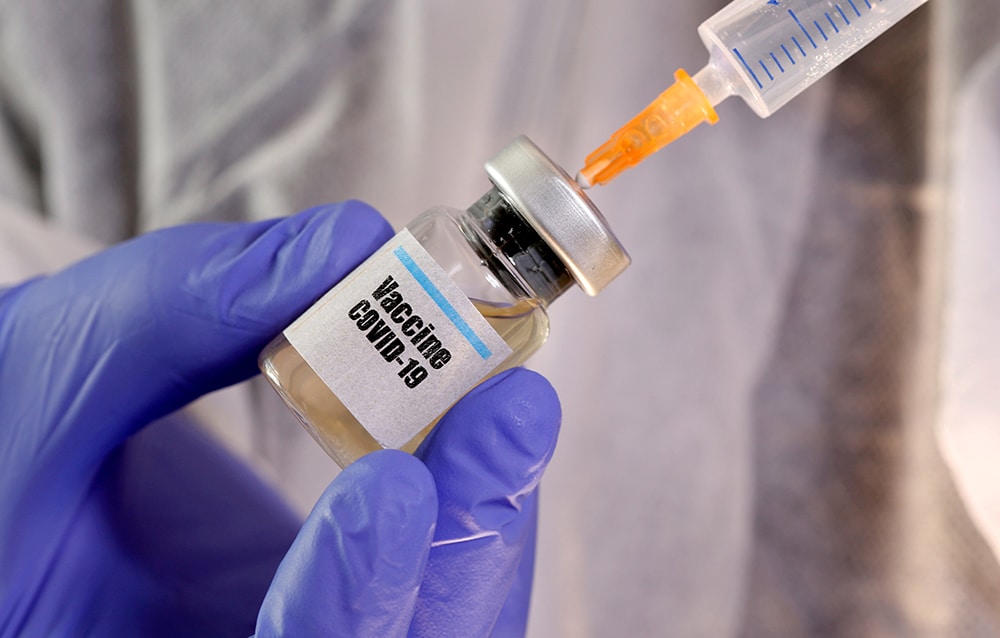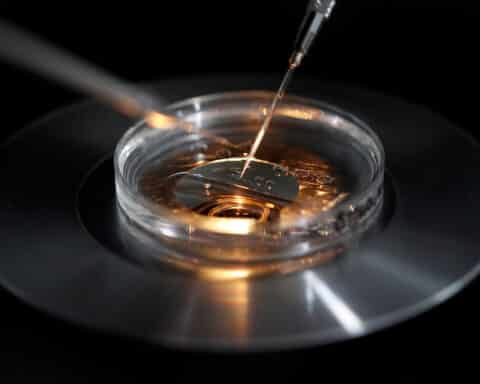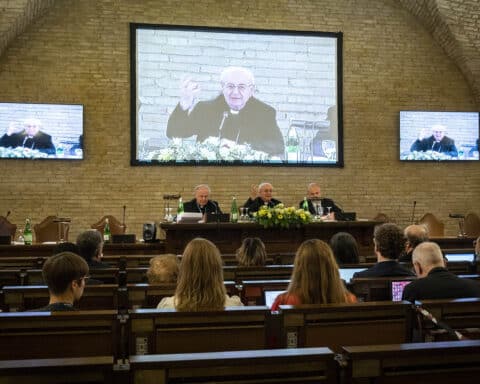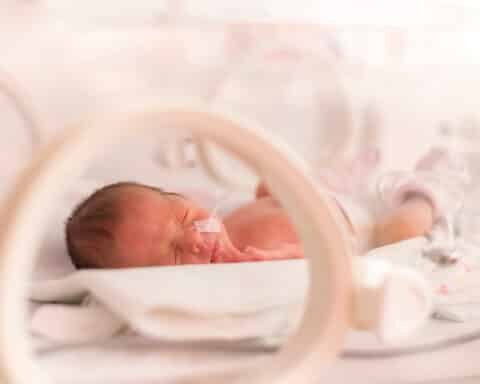With the recent news about the successes of the vaccines by Pfizer and Moderna, all of humanity has begun to see the light at the end of the tunnel of the COVID-19 pandemic. With the news about impending vaccines, there are concerns around the ethical production of vaccines and what ought to guide Catholics in the determination of the use of vaccines. It is a long and complicated topic to navigate, not only with the questions surrounding the science of how a vaccine is made, but also, from the perspective of faith, morality and ethics, how to approach the various scientific discoveries.
The issue that is at the heart of a lot of controversy is the HEK293 cell line, because it has been developed from a deceased fetus. The question is often raised: If this cell line is used in any stage of development, is this akin to moral cooperation with the evil of abortion? So, if I had a vaccine that tested itself against a replicated cell line from the abortion that garnered HEK293, am I morally complicit in its abortion that occurred in 1970?
The first thing to consider is the distinction between testing, production and development. The testing phase is a place where, while not used by Moderna or Pfizer directly, some tests were involved with the HEK293 cell line. It is a moral practice Catholics should speak out against, but it is also something that is more removed from the ethical concerns. In other words, Catholics, while needing to voice their concerns over the use of cell lines developed through the use of aborted fetuses, can make a real moral distinction between a vaccine that has used aborted cell lines in the testing phase rather than the actual development and production phases. Because of the nature of the Moderna and Pfizer vaccines, they do not use any human cells in the vaccine itself.
How, then, is it morally licit to take such vaccines? Dignitatis Personae addresses this issue in Paragraph 35, where it states that while a vaccine may have used cells from an aborted fetus in any stage of its preparations, it can be morally licit to receive the vaccine if it is to help with the avoiding of great harm. In the end, Dignitatis Personae states, those who receive the vaccine often have no voice in how it’s developed and therefore do not have the moral culpability those who have decided to use these cell lines do. To put it simply: Because we are not actually complicit in the act of abortion, we are not complicit with its action when receiving a vaccine. It can be akin to receiving organs from a deceased person killed in a drunk driving accident: The person causing the accident performs the moral evil, but we do not intend that action when receiving the organs from this morally evil action.
Where does this place Catholics? It actually gives us a few choices. First, we must always and everywhere make it clear that the use of cells from fetuses procured through abortions is a moral evil, and that there are other viable means for achieving similar results. Second, we can receive vaccines such as Moderna and Pfizer’s with a clear conscience. As Dr. John Brehany, director of institutional relations at the National Catholic Bioethics Center, told Catholic News Agency in July, Moderna was not involved in any way with the testing that used the HEK293 cell line that determined the spike protein needed to test. This also means we need to be aware of vaccines that are using cell lines from aborted fetuses where the cooperation is a bit more direct.
Because of the variety of vaccines being produced, it is also allowable for a Catholic to ask for a vaccine that is free from all interactions with aborted cell lines, and it is also allowable for a Catholic to take a vaccine such as those produced by Moderna and Pfizer. Both are allowable moral actions, and we must be careful not to villainize one or the other. This has been backed up recently both by a statement by the Pontifical Academy for Life and a recently leaked doctrinal note by the U.S. Conference of Catholic Bishops, where they note that both vaccines are not tainted with any moral problems.
This should be embraced as good news, as it now gives Catholics options where there are more ethically difficult vaccines that are proving successful. However, even then, Dignitatis Personae would say it is morally licit to receive it if it were the only vaccine available to us. Again, we must, always, cry out against the use of abortion to create medical breakthroughs, but the teaching authority of the Church recognizes that our moral cooperation is so removed as to often create a space where we can take them in good conscience.
Finally, though, one principle that is often not considered in the ethics and morality of vaccines, but must be at the front of our minds in the midst of a pandemic, is that of the common good. Thus Catholics would have a moral duty to find a way to help ensure the proper living and thriving of humanity by seeking a vaccine they will be comfortable with so as to help ensure this pandemic is eradicated. To avoid all vaccines can be seen as a sin against the common good. The question is not “will I take a vaccine” but rather “which one will I take for the sake of the common good?” In the end, as always, charity is our motivating factor behind all of our actions.
Father Harrison Ayre is a priest of the Diocese of Victoria, British Columbia. Follow him on Twitter at @FrHarrison.





